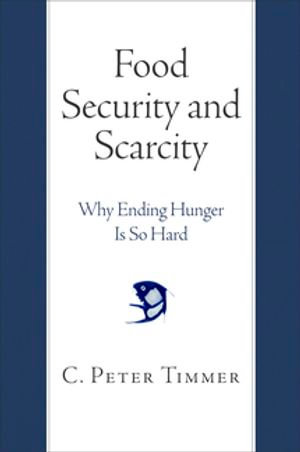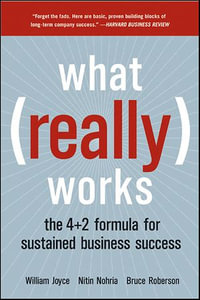
eBOOK
Food Security and Scarcity
Why Ending Hunger Is So Hard
By: C. Peter Timmer
eBook | 6 January 2015 | Edition Number 1
At a Glance
eBook
RRP $43.99
$39.99
Instant Digital Delivery to your Booktopia Reader App
Read on
In countries that have managed to confront and cope with the challenges of food insecurity over the past two centuries, markets have done the heavy lifting. Markets serve as the arena for allocating society's scarce resources to meet the virtually unlimited needs and desires of consumers: no other mechanism can efficiently signal fluctuations in scarcity and abundance, the cost of labor, or the value of commodities. But markets fail at tasks that society regards as important; thus, governments have had to intervene to stabilize the economic environment and provide essential public goods, such as transportation and communications networks, agricultural research and development, and access to quality health and educational facilities. Ending hunger requires that each society find the right balance of market forces and government interventions to drive a process of economic growth that reaches the poor and ensures that food supplies are readily, and reliably, available and accessible to even the poorest households. But locating that balance has been a major challenge for many countries, and seems to be getting more difficult as the global economy becomes more integrated and less stable.
Food Security and Scarcity explains what forms those challenges take in the long run and short term and at global, national, and household levels. C. Peter Timmer, best known for his work on the definitive text Food Policy Analysis, draws on decades of food security research and analysis to produce the most comprehensive and up-to-date assessment of what makes a productive, sustainable, and stable food system—and why so many countries have fallen short. Poverty and hunger are different in every country, so the manner of coping with the challenges of ending hunger and keeping it at bay will depend on equally country-specific analysis, governance, and solutions. Timmer shows that for all their problems and failures, markets and food prices are ultimately central to solving the problem of hunger, and that any coherent strategy to improve food security will depend on an in-depth understanding of how food markets operate.
Published in association with the Center for Global Development.
Industry Reviews
"A unique and valuable book which showcases Timmer's clear-headed approach to the interpretation and use of the data on food security. Drawing on his own past work as well as recent published research, Timmer extracts important lessons about what has changed and what has not."—Robert L. Paarlberg, Wellesley College
Read on
ISBN: 9780812290516
ISBN-10: 0812290518
Published: 6th January 2015
Format: ePUB
Language: English
Number of Pages: 232
Audience: College, Tertiary and University
Publisher: University of Pennsylvania Press, Inc.
Edition Number: 1

























